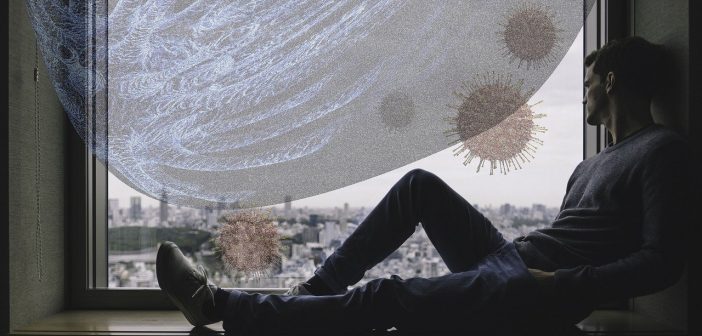ゾヤ・マリノワ フリーランスの科学ライター のKolabtreeでは、COVID-19パンデミック時のストレス対処法について書いています。
The coronavirus disease (COVID-19) has rapidly spread worldwide, since the severe acute respiratory syndrome coronavirus 2 (SARS-CoV-2) first emerged in China in December 2019. The fast spread of the disease, its severe course in a subset of patients, and the lack of a vaccine and specific medications necessitated unprecedented public health measures. What effects does the COVID-19 pandemic have on emotional wellbeing and how to cope with them?
COVID-19の症状と広がりについて
COVID-19の症状は、ウイルスにさらされてから2~14日後に発症し、軽度から重度のものまであります。発熱、咳、喉の痛み、息切れ、原因不明の味覚や嗅覚の低下、震えを伴う寒気、頭痛、筋肉痛などがあります。[1]
COVID-19パンデミックの精神的影響は?
COVID-19パンデミックによる前例のない公衆衛生対策により、多くの人が日常生活に変化をきたし、社会的に孤立しています。また、経済的な不安や将来への不安も多くの人に影響を与えています。これらの要因が重なると、大きな精神的苦痛を引き起こす可能性があり、この前例のない状況に対する反応は実にさまざまです。恐怖、イライラ、集中力の低下、慢性疾患の悪化、食欲不振、不眠などの症状が出ることがあります[2]。 In a recent study on 1210 respondents from 194 Chinese cities, over 50% of the participants assessed the psychological effects of the COVID-19 outbreak as severe or moderate. Moreover, a substantial number of respondents reported moderate to severe depressive symptoms (16.5%), 不安 symptoms (28.8%), or stress levels (8.1%).[3] 現在の状況の重要な要因である脅威と不確実性の認識は、いずれも苦痛のレベルに寄与します[4]。
COVID-19パンデミック時のストレス対処法とは?
情報の流れを管理し、予防的措置を講じる。 ストレスの多い状況では、特に就寝前などの無防備な時間帯に、強制的にニュースをチェックすることを避けると、リラックスできるかもしれません。5 しかし、関連する健康情報にアクセスし、明確に定義された予防措置に従うことも、予測不可能な感覚を和らげるために重要です[3]。
毎日の生活を大切にすること。 また、日常生活を送ることで、不安感が軽減され、日常生活に予測可能性をもたらすことができます。
セルフケアの実践。 健康的な食事、十分な睡眠、体を動かすことは、ストレスや不安が多い時期には特に重要です。[5] 適度な身体活動であっても、気分にポジティブな影響を与え、感情的な苦痛を和らげるのに役立ちます[6]。
大切な人と(仮想)連絡を取り合う。 ビデオ通話や電話、電子メールであっても、大切な人との連絡を維持することで、この困難な時期に、お互いに支え合い、安心感を得ることができます。社会的支援は、危機に対処するための重要なリソースとなるかもしれません。[7]。
リファレンス
- Centers for Disease Control and Prevention. https://www.cdc.gov/coronavirus/2019-ncov/symptoms-testing/symptoms.html。
- Pfefferbaum B, North CS.メンタルヘルスとCovid-19パンデミック。 New Engl J Med.2020, Apr 13.[Epub ahead of print].
- Wang C, パンR, Wan X, Tan Y, Xu L, Ho CS, Ho RC.中国の一般住民の間で2019年に発生したコロナウイルス病(COVID-19)の流行の初期段階における即時的な心理的反応と関連する要因について。 Int J Environ Res Public Health.2020;17:pii:E1729.
- Freeston MH, Tiplady A, Mawn L, Bottesi G, Thwaites S. Towards a model of uncertainty distress in context of coronavirus (Covid-19). PsyArXiv. 2020. https://doi.org/10.31234/osf.io/v8q6m.
- The American Psychological Association(米国心理学会)。 https://www.apa.org/helpcenter/stress-uncertainty.
- von Berens Å, Fielding RA, Gustafsson T, Kirn D, Laussen J, Nydahl M, Reid K, Travison TG, Zhu H, Cederholm T, Koochek A. 高齢者の健康関連QOLと気分に対する運動と栄養補給の効果:VIVE2無作為化対照試験。 BMC Geriatr. 2018;18:286.
- Parks V. The critical role of social capital during the COVID-19 pandemic: lessons from disaster リサーチ. 2020, April 16. https://egrove.olemiss.edu/population_brief/2/.







